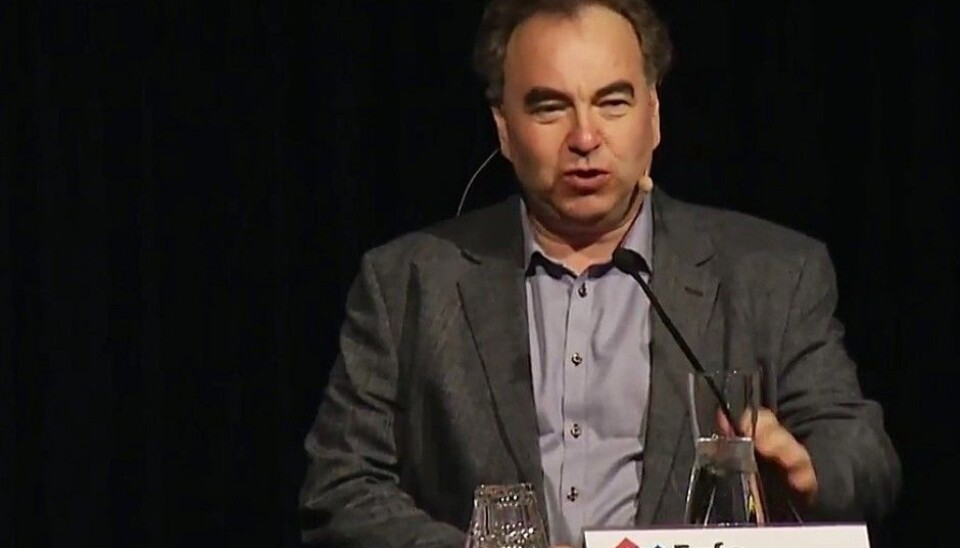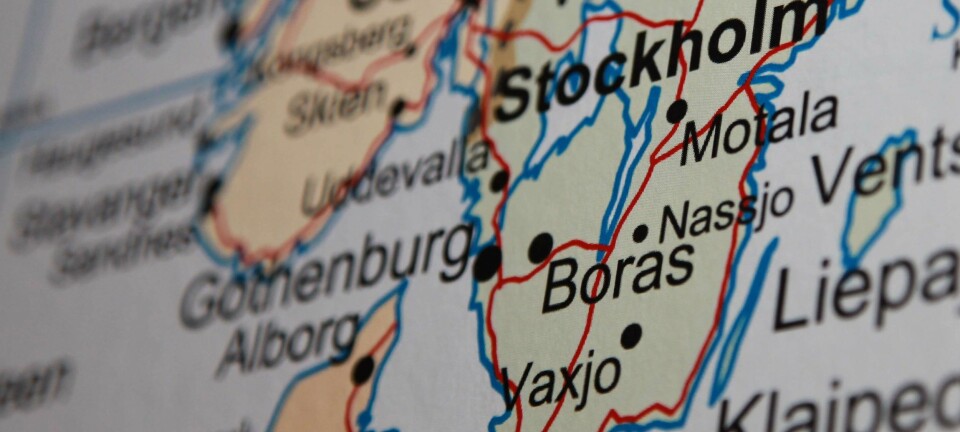
Why do the Nordics trust one another?
Scandinavian and Nordic populations are a trusting lot, exhibiting a high degree of confidence in other people. Why?
“We find a strong association between a low degree of corruption and a high degree of confidence,” says Bo Rothstein, a Swedish political scientist and professor at the University of Oxford.
Rothstein recently spoke about his and others’ research on the link between non-corruption and social trust at a recent conference held by the independent research foundation Fafo in Oslo.
“I think confidence can be generated through high-quality governance of society.”
Rothstein has an international reputation for his work about corruption, “social capital” and notably his studies on how societies and governments can promote or undermine people’s trust in one another.
On a world scale, people in the Nordic countries are unusually trusting. A much higher proportion of the population than in other European countries agree with the following statement: “Most people can be trusted.” The Nordic countries are also known to have little corruption and systems ensuring everyone an education and other public benefits and services – often referred to as the Scandinavian welfare state model of government.
Social scientists can quantify confidence to institutions and the public’s confidence in others. Rothstein and others have found that when we trust law enforcers and the courts – and other institutions generally function well – we also trust each other more.
“It’s vital how you consider the police, hospitals and the schools in your local environment,” he says.
Corruption corrodes
The solid mutual confidence citizens have in the Scandinavian/Nordic countries came about before the welfare states were created, explained another Swedish researcher attending the Fafo conference.
“Quite a lot of the confidence can be explained by factors that stretch far back in time,” said Andreas Bergh of Lund University.
But the forces of history are hard to change. Bo Rothstein’s advice for raising the level of confidence in a society is to concentrate on maintaining well-functioning systems.
“We have to focus on things we can do here and now. The most important thing we can currently do is raise the quality of our institutions,” he said.
Andreas Bergh concurred. This sort of confidence in others is lower where the economic gaps among the people are wider. However, trust is not promoted by remedying these disparities through heavier taxation of the wealthy, according to his investigations.
He thinks efforts such as dealing with corruption and a lack of opportunities have a greater impact.
“Promoting schools and bolstering fair government can help,” says Bergh.
How does immigration fit in?
What happens to this confidence within Nordic societies as their population of immigrants increases?
Research on that question is inconsistent. Some studies have found that solidarity and mutual trust can be lower in countries with greater ethnic diversity. The reason is unclear. This tendency does not necessarily point to immigration as the cause of lower levels of trust.
One theory why Norwegians have so much confidence in one another is that they have historically been relatively egalitarian and alike. For centuries most were farmers or fishermen, without a strong and dominant domestic nobility class seen in other European and countries.
“I have always had my doubts about this claim that ethnic diversity inherently creates less trust. Some regions with extremely little trust, for instance Sicily, are almost ethnically homogenous,” says Rothstein.
In a study from 2013 he and his colleagues measured the trust of 84,000 persons in several regions in European countries. They took into account factors such as unemployment, economic inequality and how many of the immigrants in these regions were born outside of Europe.
Economic inequality undermines trust among the citizenry. But apparently nothing has more of an impact on such levels of confidence as the question of how well institutions function. The researchers not only investigated whether the institutions were corrupt, but also the degree to which key social institutions were considered competent and unbiased.
“The impact of ethnic diversity actually disappears when we control for institutional quality,” says Rothstein.
“If a person considers public institutions to be of low quality it is easy to think that people coming into the country are dodging taxes, engaged in criminal activities and exploit the welfare system. So confidence drops. But if you think institutional quality is good you figure that the people immigrating will have to play by the same rules as yourself,” he asserts.
Not so rosy red?
The Danish researcher Per Mouritsen of Aarhus University is not convinced by that argument.
“Claiming that diversity doesn’t mean anything is painting things too rosy red,” he says.
He refers to a study indicating that some Scandinavians think Eastern Europeans tend to have a lower work ethic. So they are thus less willing to be altruistic and share the benefits of their welfare state with newcomers. Thus, immigration can have an impact on general solidarity, which is linked to trust.
Bo Rothstein says he has only conducted one study of this particular theme. But he adds that other research has indicated the important role played by a country’s institutions. A Danish study revealed that immigrants have more confidence and trust if they feel they have been treated justly by the Danish institutions.
“I am not saying that immigration doesn’t entail problems for trust. But this is not written in stone, as many seem to claim.”
There are high immigrant populations in some Swedish communities and cities, most notably in Malmö. General trust in others is not as strong there as in Stockholm, but it is still stronger in Malmö than in most places in Europe.
The issue of whether immigration has an impact on confidence within a society is controversial. A Norwegian researcher, Dag Wollebæk, wrote an op-ed piece in the Oslo newspaper Aftenposten pointing out that the results of studies differ if surveys attempt to gauge general trust of others in a society rather than simply gauge trust in one’s neighbours.
-------------------------------------
Read the Norwegian version of this article at forskning.no
Translated by: Glenn Ostling
































